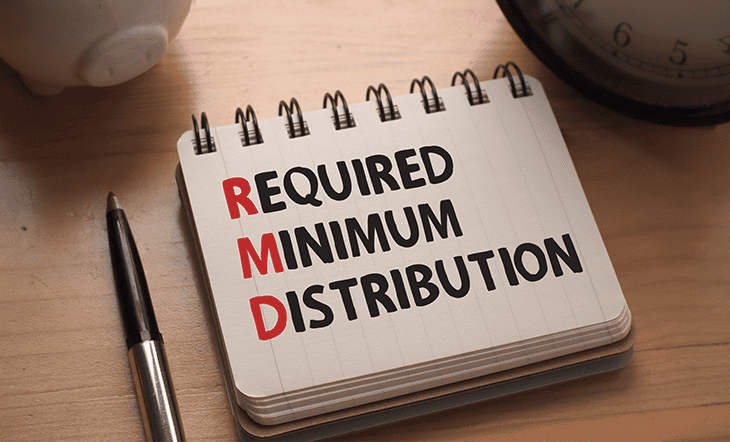Home > Retirement > Wise Money Moves For The First 5 Years of Retirement
Wise Money Moves For The First 5 Years of Retirement
Retirement is referred to as the golden years of one’s life where one can find time to relax. The pressures of work, deadlines to complete reports, and the stress of planning for the future, are all behind you. In most cases, your children will be in college or working, so the stress of covering their expenses is over. You no longer have to worry about traffic on your way to work and back or earning money. However, in order to have such a relaxed life post-retirement, you need to be wise with your retirement planning. Retirement planning can go on for years and practically constitute the maximum chunk of your life. It is advised to start planning for your retirement in your 20s. Considering you retire like the average American in your 60s, you may be saving and investing for this phase for close to 40 years. A lot of people think retirement stops here. However, retirement planning continues well into your golden years.
The initial years of retirement can be critical in deciding the rest of it. If you make smart money moves during these years, you can enjoy a long, comfortable retirement without having to depend on others. However, if you miscalculate your needs during these years, you can be stuck with a lifetime of compromise and dependence on others. Reach out to a professional financial advisor to learn what strategies you can use to secure your financial future and ensure that you have a comfortable retirement.
If you are new to retirement or retiring in the near future, here are five frugal things that can shape your retirement in the first five years.
Table of Contents
1. Delay withdrawing Social Security benefits:
Social Security benefits can account for a significant chunk of your retirement money. In April 2022, the average monthly paycheck was $1,666.49, whereas the average monthly spousal benefit was $837.34. This may not be a considerable amount on its own but can be if you add it to your other retirement income, such as pension, 401k withdrawals, individual retirement account (IRA) withdrawals, mutual fund returns, stock returns, dividends, etc. Most people withdraw their benefits from the full retirement age. The full retirement age is calculated on the basis of your year of birth. As of 2022, if you were born between 1943 and 1954, your full retirement age is 66. If you turn 62 in or after 2022, your full retirement age will be 67. Usually, you can start drawing your Social Security benefits from the age of 62. But there are benefits to delaying it.
If you withdraw your benefits at the age of 66 or 67 (full retirement age), you will get 100% of your monthly benefit. Further, your paycheck will keep increasing every month you delay it. Delaying by one month will increase it by 100.7%. Six months later, you can earn 104.0%. After one year, you can get 108.0%. At the age of 70, you can get 132% of the monthly benefit. The longer you delay, the higher your paycheck. The cost of living adjustment (COLA) increase on your benefits is increased when you let your money stay in the Social Security benefits account. This can be helpful in later years of retirement, as you would have a bigger nest egg to rely on.
Moreover, Social Security benefits are not taxed entirely. Only 85% of your paycheck is taxed. This means that when it is time to withdraw your required minimum distributions (RMDs) from other accounts, you would be able to lower your overall tax liability with tax diversification by adding Social Security benefits to the list.
2. Do not go overboard:
Big money moves at the beginning of your retirement can be detrimental to your future years. A lot of people end up spending money on significant expenses like renovating a house, buying a home, buying a new car, a world tour, etc. Grand gestures like these can be tempting if you receive lump sum money from your investment accounts. The high value of funds can make it hard to resist the urge to spend. It can also be misleading. A hefty account balance in retirement is the result of years and years of hard work and consistent savings.
Moreover, it is supposed to last you for a good 20 to 30 years, sometimes even more. It is hard to predict how long your retirement can last, but being prepared for the unexpected is essential. Therefore, it is important to not go overboard with expenses in the initial years. Instead, try to take it slow. If you have a house to renovate, you can start saving for it separately for a few years preceding your retirement. This way, you would not have to dig into your retirement savings. Likewise, if you plan a big travel trip or want to buy a new car, you can do so with prior planning and savings. Try to keep your other financial goals separate from your retirement expenses. Overlapping can be common, and several times, it can be hard to distinguish between your expenses, but consciously tracking your expenditure can be helpful.
3. Do not stop investing:
A common mistake that many people commit is to stop investing in retirement. While it is true that your risk appetite drastically drops in retirement, you do not necessarily have to stop investing altogether. Inflation is never likely to go away. The prices of goods and services will rise. Considering that your retirement can last 20 years or more, the value of your savings the year you retire will be rendered invaluable by the time you reach the end of retirement. Therefore, you need to keep investing your money in instruments that can offer growth and help you create wealth in the face of inflation. Alongside investing in stocks, you can consider investing in municipal, government, and corporate bonds, certificates of deposits, life insurance, etc. These options can offer stability to your financial plan, help you preserve your wealth, and secure your financial future in your golden years. Life insurance, in particular, can be helpful to safeguard your loved ones. It is also a great estate planning tool as the insurance payout is exempt from tax. So, you can leave behind a foolproof legacy for your loved ones.
4. Work part-time if possible:
Another smart retirement move can be to work part-time for the initial years. 70 is the new 60. With medical and technological advancements, people in their 60s and 70s are healthier and more willing to work than ever. While you may want to stop working full-time, you can consider some part-time opportunities to keep your income flowing. You can consider turning a hobby into a career, such as writing, photography, etc. You can also start a business, such as online selling, marketing, etc. Financial consultants, dieticians, stylists, real estate agents, etc., can choose to work for a limited number of hours per their availability and choice. If your health permits you to work, there can be no better thing. Working has several benefits apart from financial incentives. It can ease the process of retirement by slowing the transition. Some people find it hard to adapt to a non-working life. This can lead to stress, anxiety, and depression, which can further trigger excess spending to overcome the stress momentarily. Getting caught up in this chain can be detrimental to your future retirement financial safety. However, a part-time job can be a simple way to avoid such a situation and also earn some extra money.
5. Avoid debt:
Smart money decisions like avoiding debt can be essential to maintaining a stable retirement. The interest rates of debt can eat into your savings. The best thing to do is not carry any debt into retirement. Ten years before retirement are very critical. You can use this time to get rid of any pending loans. You can also consider limiting your credit card use as you inch closer to retirement. However, if you do end up in retirement with debt, your priority should be to clear it as soon as you can. Taking a part-time job can also be necessary here. The lump-sum savings at retirement may give you the false illusion that you can comfortably pay back your debt, but getting into this cycle can exhaust your savings sooner than you think. Therefore, it may be advised to avoid it altogether unless absolutely necessary. One way to avoid debt can be to maintain a steady emergency fund throughout life. This can be used in the case of emergencies. Further, if you wish to take a loan for a non-essential need, try to evaluate the purpose of your purchase and whether or not you really need it.
To summarize
Smart money moves in retirement can be necessary to maintain a happy and content life. These small things may seem inconsequential at times but can go a long way in securing you and your loved ones financially. In addition to this, it can help set the right tone for retirement from the very start. If you are financially disciplined in the beginning, you are far more likely to continue with the same steadfastness and commitment in the later years.
Moreover, if you ever find it hard to manage your money or need a professional’s opinion on the matter, you can always hire a financial advisor. Use Paladin Registry’s free advisor match tool and get matched with 1-3 qualified advisors who may be able to help you with your unique financial goals and requirements.
To learn more about the most suitable tax-saving strategies for your specific financial requirements, visit Dash Investments or email me directly at dash@dashinvestments.com.
About Dash Investments
Dash Investments is privately owned by Jonathan Dash and is an independent investment advisory firm, managing private client accounts for individuals and families across America. As a Registered Investment Advisor (RIA) firm with the SEC, they are fiduciaries who put clients’ interests ahead of everything else.
Dash Investments offers a full range of investment advisory and financial services, which are tailored to each client’s unique needs providing institutional-caliber money management services that are based upon a solid, proven research approach. Additionally, each client receives comprehensive financial planning to ensure they are moving toward their financial goals. CEO & Chief Investment Officer Jonathan Dash has been covered in major business publications such as Barron’s, The Wall Street Journal, and The New York Times as a leader in the investment industry with a track record of creating value for his firm’s clients.
Other posts from Jonathan Dash
Here’s Why Every Tax Season is a Good Time to Revisit Your Financial Investments
The tax season is the perfect time to take a closer look at your financial investments. The 2025...
3 Key Financial Habits That Set Wealthy Retirees Apart
The wealthy may seem to have it all figured out, but their success is the result of years...
Things You Should Know About RMDs if You Are Turning 73
Retirement accounts like the 401(k) and the Individual Retirement Account (IRA) are broadly classified as traditional, and Roth based on their taxability....




